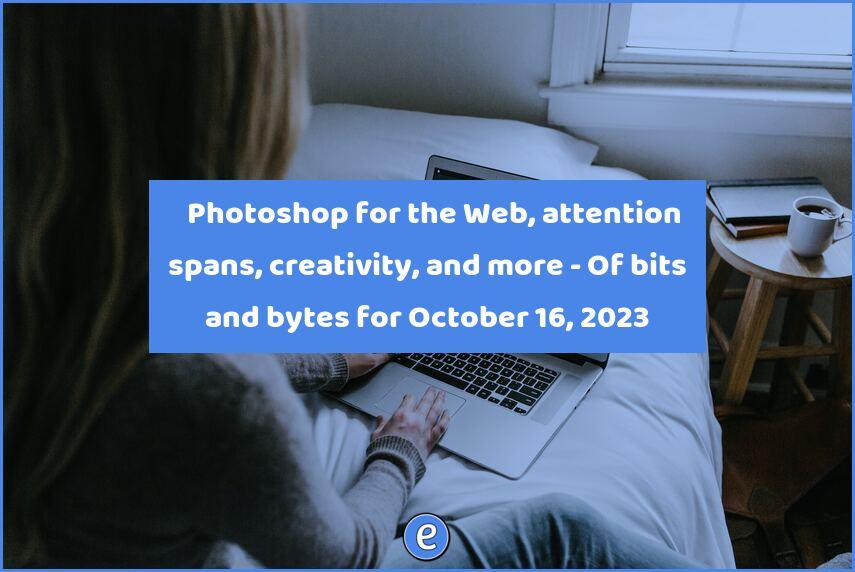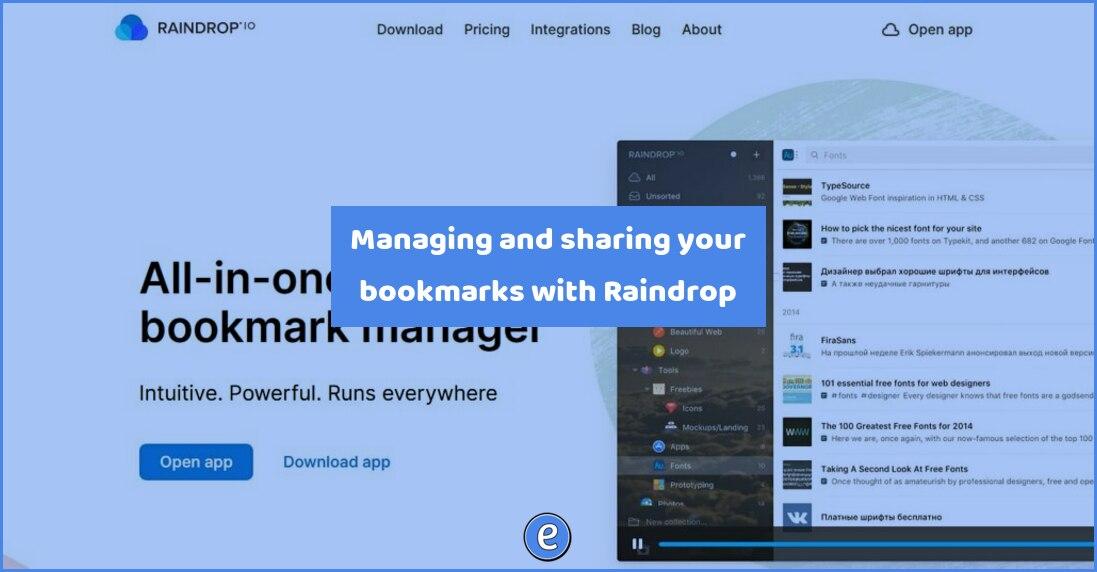🌌 Photoshop for the Web, attention spans, creativity, and more – Of bits and bytes for October 16, 2023
Internet Travels
Of bits and bytes is my weekly round up of interesting links and ideas I discovered on the internet. It is published on Mondays for the previous week
Learn21 is a proud sponsor of Eduk8me and the Of Bits and Bytes newsletter. Read more about their mission at Learn21.
Apps
Big news this past week, Adobe has released Adobe Photoshop for the web. Before you get too excited, be aware that to use it requires a Creative Cloud license for Photoshop. However, this release means that Chromebook users will have an easy way to use Photoshop. Coming along for the ride is Adobe’s amazing Generative Fill, which allows you to expand photos and add or remove items for photos.
If you need to edit photos and don’t have a license for Photoshop, check out Photopea.
Pedagogy
The Chan Zuckerberg Initiative’s recent decision to move away from its personalized learning platform, Summit, which it funded with nearly $100M since 2015, highlights the gap between technology-driven educational ambitions and real-world results. The Summit model, heavily computer-centric, focused on allowing students to learn at their own pace, a concept that other tech proponents like the Gates Foundation and Sal Khan have endorsed. Yet, in classrooms like that of Liz Clark-Garvey, whole-class instruction can feel deeply personal and engaging, suggesting that traditional methods can still effectively cater to individual needs, thereby challenging the assumption that tech-based personalization is the only path to improved learning experiences.
Embarking on a new creative journey, the John Spencer shares personal experiences of confronting self-doubt when starting an apparel project and launching a new comic series. Through vulnerability and embracing a growth mindset, the article delves into the realities of learning a creative skill and offers strategies to overcome self-doubt, underscoring that initial struggles often lead to later success. He ends up with a great list of 10 strategies to help others get over the self-doubt.
Matthew Kirchner highlights the decreasing attention spans in modern society, suggesting the importance of repeating key messages up to seven times in different ways to ensure understanding and retention in the professional setting. In personal life, while repeating seven times might be overkill, three methods – verbal, written, and visual reminders – can effectively help in reinforcing important messages and tasks, as our brains process visuals significantly faster than text.
Technology
Google has recently made “passkeys” the default option for personal Google Accounts, providing a more secure and efficient way to sign in using fingerprints, face scans, or pins. Feedback has been positive, and the feature allows users to bypass traditional password input when possible. Since its introduction, platforms like Uber, eBay, and soon WhatsApp, are integrating this feature. Passkeys not only simplify the login process but also offer protection against phishing. Google’s vision is for passkeys to eventually replace traditional passwords altogether. This future is a ways off since your password will still be needed.
Tips
Google Drive for the web is getting a recent activity view. With this view you’ll be able to see all pending access requests, recent comments, and any approvals for files (if you are on a Google Workspace plan that supports that feature).
Pop Culture
I had a feeling that culture wasn’t changing when I saw the movie Big Miracle and now I have confirmation. The movie takes place in 1988, and basically, except for the lack of smartphones, it could have happened anytime in the last 30-40 years and still look pretty much the same.
Group chats have become the new social media, filling the intimacy void left by platforms like Facebook and Twitter, according to Faith Hill, an editor at The Atlantic. Hill’s article “Group-Chat Culture Is Out Of Control” discusses the pros and cons of these digital spaces, emphasizing their importance during the pandemic as a way to feel connected. However, as group chats proliferate, many find them overwhelming and struggle with the lack of established etiquette, leading some to “lurk” silently or prioritize which chats matter most.
Potpourri
A recent study by a German team from LMU Munich and the University of Marburg explored why researchers sometimes withhold knowledge from peers, finding a link to a personality trait called “victim sensitivity,” characterized by fear of exploitation. The study emphasizes the importance of fostering a cooperative academic environment, challenging the stereotype of researchers being solely ambitious and suggesting a shift towards an identity promoting knowledge-sharing and trustworthiness.
Creativity is deeply rooted in both curiosity and the courage to think outside the box. Science reveals that while there’s no universal definition, nurturing curiosity in children, fostering environments that challenge the status quo, and understanding the underlying genetics and brain structures can help illuminate the essence of creativity. There may be biological components of creativity that has only been studied a little bit.
Extra Credit
Here are extra links that I found interesting that may or may not be education related or interesting to you and I didn’t want to lose them.
- Fair coins tend to land on the same side they started: Evidence from 350,757 flips
- Gen Z Are Building Their Own College Degree to Keep up With Job Market
By design, the vast majority of Of Bits and Bytes readers never pay anything for the links, commentary, and tips it provides. But you made it all the way to the end of this week’s edition — maybe not for the first time. Want to support more journalism like what you read today? If so, click here.

Be sure to subscribe to my YouTube channel and join your fellow educators on the Eduk8me email list!






